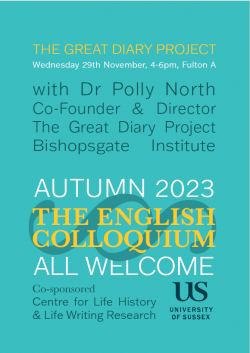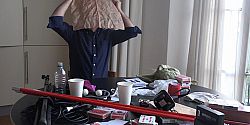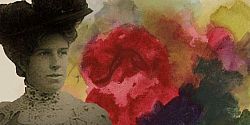Life history and life writing research uses life story - whether in the form of oral history, personal narrative, autobiography or biography - as a primary source for the study of history and culture.
Life history and life writing research uses life story - whether in the form of oral history, personal narrative, autobiography or biography - as a primary source for the study of history and culture. Life stories capture the relation between the individual and society, the local and the national, the past and present and the public and private experience. Research involves grappling with theories of memory, relationship and self representation, and with debates about literacy and orality. Many disciplines contribute to the field, including history, sociology, anthropology, literary philosophy, cultural studies and psychology. Life history and life writing researchers present their work in many forms. As well as academic publications, we contribute to radio and television documentaries, auto/biographical drama, reminiscence work, digital and video presentations and exhibitions. Life history and life writing research is, of necessity, concerned with ethics and power relationships, and with the potential for advocacy and empowerment.
Our next free event:
The Great Diary Project
Wds 29 November 2023, 4pm-5.30pm
University of Sussex, Fulton A
Free, in-person, all welcome, disabled access. Drinks and nibbles.
Why do people keep diaries? Who should read them? Discover the amazing The Great Diary Project, with director Dr Polly North. Share yours?

This interactive presentation will introduce the amazing The Great Diary Project, which has been collecting popular diaries at the Bishopsgate Institute since 2007 and whose archive stretches between 1700 and 2023. Dr Polly North, the Project co-founder and Director, will speak to the prosaic and profound interests of these texts, from the appointment diaries of a one-woman crusade against inadequate care homes to the beautifully illustrated diaries of a 19th century London restaurant-goer.
We will then share our own experiences with diaries, with an invitation to show and tell! This will include debates over the ethical challenges involved.
Prof Andrew Hadfield and Prof Margaretta Jolly will introduce and respond
Registration required on Eventbrite here.
Questions please contact E s.ladkin@sussex.ac.uk
More upcoming events:
Making Something from Nothing: A CLHLWR-Doctoral workshop
Wds 6 December 2023, 3pm-5pm
Silverstone Building (Room 302), University of Sussex
Free, in-person, all welcome, disabled access. Drinks and nibbles.
Can we develop research about absence? Discover the beauty of negative findings, lost opportunities, impossible selves, unlived experience.

We hear from Professor Susie Scott, Principal Investigator to the Narratives of Nothing Leverhume Research Project. Susie’s work includes an interest in nothingness, shyness, embarrassment, boredom, stage fright/performance anxiety, total institutions, asexuality, politeness, surprise. Augusto Corrieri, the creator of Gambini, uses research-by-practice methods to explore how magic, as a ‘popular’ form of entertainment, can be approached and dissected through performance art and meta-theatre.
Participants will then enjoy the opportunity to play with our own work in ‘turning nothing into something’ (that can be funded). Prof Margaretta Jolly will facilitate.
Registration required at: Eventbrite
Recent past event:
Forgotten Female Pioneers: Mary Gartside and Ellen Willmot
A double-bill of talks by Alexandra Loske and Steven Bustin
Thur 19 October 2023, from 7pm. Ticketed.
The Folklore Rooms / 12 North Street Brighton and Hove BN1 3GJ





